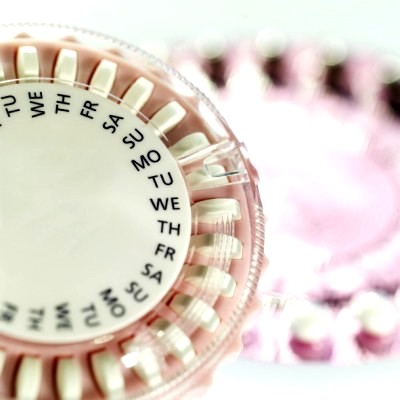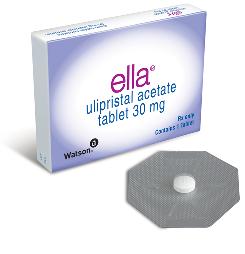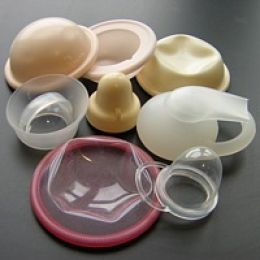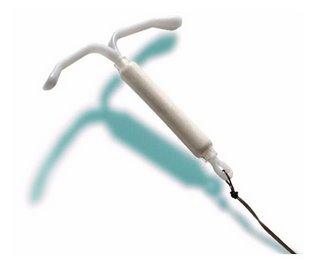 There are various methods available for birth control and you should choose the right one depending on various factors. Your doctor will help you determine which option is the best for you. Some of the methods include natural family planning, birth control products which are available OTC, prescription contraceptives or even sterilization.
There are various methods available for birth control and you should choose the right one depending on various factors. Your doctor will help you determine which option is the best for you. Some of the methods include natural family planning, birth control products which are available OTC, prescription contraceptives or even sterilization.
Factors to be considered before determining the right method for you are: if you want to get pregnant again, your health status, how frequently you have sex and number of sexual partners etc. There are many side effects of birth control pills; however, the risk involved is less as compared to an unplanned pregnancy. In this article you will find some details about birth control methods and their side effects.
Side Effects of Birth Control
The side effects of birth control are specific to the method and listed below.
Hormone Related Birth Control
What are they?
 Birth control methods which contain doses of hormones to prevent ovulation. Examples of this method are – birth control pills, vaginal rings (E.g. NuvaRing), contraceptive implants (E.g. Implanon), and contraceptive injections like Depo-Provera and contraceptive patch like Ortho Evra.
Birth control methods which contain doses of hormones to prevent ovulation. Examples of this method are – birth control pills, vaginal rings (E.g. NuvaRing), contraceptive implants (E.g. Implanon), and contraceptive injections like Depo-Provera and contraceptive patch like Ortho Evra.
How do they work?
The birth control pills are usually combination pills, which contain both the female hormones – estrogen and progesterone. They can prevent ovulation – which means the release of egg from the ovaries each month. Then there is no egg to be fertilized, hence no pregnancy. The pills also work by making changes in the lining of the uterus, which prevents implantation of the egg. Another way the pills act is by thickening of the cervical mucus, which does not allow the sperms to reach the egg.
Side effects:
Most of the birth control pills are very safe and effective, so most of the women on the pill experience very few side effects or none at all. Some of the side effects of the pill are described below:
- Irregular menstruation
- Breast tenderness, nausea, headache and dizziness
- Mood swings
- Blood clots (rare in non-smoker women under age of 35)
The intensity of the side effects usually gets better within 3 months of starting the pill. In case the side effects are very strong, the doctor can change the brand of the pill. Some positive side effects of the pill, which are welcomed by women, include lighter periods and decrease in menstrual cramps. Doctors usually prescribe these pills when women have severe menstrual problems. They can also reduce acne and reports suggest that these pills help in protecting from breast ailments, anemia, ovarian cysts, ovarian and endometrial cancer as well.
Watch the video know more side effects of birth control pills:
Emergency Pills of Birth Control
What are they?
 Also known as the morning-after pills, emergency contraceptive pills (ECP) are meant to be taken only as an emergency measure. Next Choice, Plan B One-Step and Ella are some of the brand names.
Also known as the morning-after pills, emergency contraceptive pills (ECP) are meant to be taken only as an emergency measure. Next Choice, Plan B One-Step and Ella are some of the brand names.
How do they work?
The ECPs work by delaying ovulation and are most effective when taken immediately after intercourse. However, they are still effective when taken up to 120 hours after having intercourse. These pills do not work if fertilization and implantation has already occurred or if intercourse happens after the pill is taken.
The mode of action is due to a progesterone-like hormone – levonorgestrel, which is given in high dose and prevents pregnancy. The dosage would depend on the type of the pill.
Side effects:
Temporary irregularity in menstrual periods can happen after taking ECPs. Other side effects which usually last for 1 or 2 days are nausea, vomiting, breast tenderness, headache, fatigue, abdominal pain and dizziness.
Barrier Methods of Birth Control
What are they?
 Barrier methods are physical barriers to prevent fertilization of egg from the sperm and include condoms – male and female, diaphragm, cervical cap and contraceptive sponges.
Barrier methods are physical barriers to prevent fertilization of egg from the sperm and include condoms – male and female, diaphragm, cervical cap and contraceptive sponges.
How do they work?
All barriers mentioned above prevent the sperm from reaching the cervix and the egg, therefore they can prevent pregnancy.
Male condoms are the most commonly used method for birth control all over the world. They are cheap, easy to use and usually do not have any adverse effects. They are also beneficial in preventing sexually transmitted diseases.
Side effects:
Barriers do not cause many problems in both men and women. Side effects that are sometimes seen are:
- Allergy to the material used in the barrier like latex
- Irritation caused in the private area due to the spermicides or lubricants used in the condoms
- In case the barrier is left in the body for long, they can cause vaginal discharge, infection or strong and foul odor
- The likelihood of urinary tract infection may increase due to diaphragms
Intrauterine Devices of Birth Control
What are they?
 These are devices placed inside the uterus and could be either copper intrauterine devices (ParaGard) or hormonal Intrauterine devices (Mirena)
These are devices placed inside the uterus and could be either copper intrauterine devices (ParaGard) or hormonal Intrauterine devices (Mirena)
How do they work?
Intrauterine devices are T shaped devices which need to be placed in the uterus by the doctor. There are majorly 2 types of IUDs:
Copper IUD, prevalent by the brand name ParaGard, releases small quantity of copper in the uterus and prevents sperm from reaching the egg and fertilizing it. Implantation is also prevented in case fertilization does occur. The copper IUD lasts for 5 to 10 years.
Hormonal IUD is also called as IUS or Intra Uterine System. They are prevalent by the brand name Mirena. They act in the same method like the hormonal birth control pills by releasing progestin in the uterus. It prevents ovulation, causes thickening of cervical mucus and also prevents the fertilized egg from implanting in the uterus. The IUS lasts for around 5 years.
Side effects:
- The IUD users may experience the below mentioned side effects:
- Irregular menstruation in initial months
- Copper IUD causes heavy periods with cramps
- Hormonal IUDs can cause light or short periods and sometimes no periods
- Hormonal IUD can also cause PMS-like symptoms which include breast tenderness, acne, nausea and headaches
Others
- Sterilization surgeries
Sterilization surgery is usually considered permanent and includes tubal ligation in women and vasectomy in men. Although they can be reversed, it may not always be possible. It is a very effective method and should be done only after careful consideration.
- Behavior
This is one method which does not have any side effect, but is not as effective as other methods. It involves abstaining from intercourse during ovulation phase, to prevent the sperm from entering the vagina. It requires a lot of motivation, diligence and self-control.
